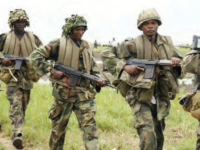Professor Jerry Gana, a former Minister of Information and respected elder statesman, has sounded a stark warning about the escalating insecurity along Nigeria’s borders. He highlighted that the country’s vulnerable and easily penetrable frontiers are facilitating the unchecked flow of weapons, criminals, and escalating violence across the nation.
Addressing an audience in Abuja on Monday during the commemoration of the 2025 International Day of Peace and the 25th anniversary of the Institute for Peace and Conflict Resolution (IPCR), Prof. Gana called on the Federal Government to transition from mere recognition of the border security crisis to implementing immediate and effective measures to protect Nigeria’s territorial integrity.
“Our borders are alarmingly porous. Individuals can cross at will, any time, and engage in unlawful activities without restraint. This situation is unacceptable and irresponsible,” he emphasized.
He warned that without firm and strategic interventions to fortify the nation’s borders, insecurity would continue to plague Nigeria, undermining any prospects for peace, stability, and economic growth.
“The government must prioritize border security with utmost seriousness. Failure to do so will allow insecurity to dominate, making peace and comfort unattainable for our people,” Prof. Gana asserted.
He further elaborated that the absence of peace threatens not only development and prosperity but also the very survival of Nigeria as a nation.
Clarifying the concept of peace, he noted, “Peace is more than just the cessation of violence. It embodies justice in practice, leadership grounded in integrity, and the fair and equitable distribution of resources.”
Prof. Gana also highlighted the global decline in peaceful conditions as a profound danger to humanity, urging Nigerian leaders to embed fairness, justice, and national security at the core of their governance strategies.
He described the theme of the 2025 International Day of Peace, “Act Now for a Peaceful World,” as both a beacon of optimism and a call to immediate, decisive action.
At the same event, Dr. Joseph Ochogwu, Director General of IPCR, emphasized the critical need for sustained, coordinated investments in peacebuilding initiatives. He pointed out that Nigeria’s security landscape is increasingly complicated by factors such as violent extremism, internal conflicts, misinformation, and widening economic disparities.
“Today’s global environment is fraught with challenges-from geopolitical rivalries and domestic unrest to economic imbalances and conflicts driven by climate change, alongside the rise of violent extremism and polarizing social media narratives,” Dr. Ochogwu remarked.
He stressed that peace should be understood not simply as the absence of conflict but as the presence of justice, fairness, and human dignity.
Highlighting the Federal Government’s Renewed Hope Agenda, Dr. Ochogwu acknowledged its potential to bolster peacebuilding efforts but cautioned that effective implementation remains a significant hurdle.
“In honoring the International Day of Peace, we must renew our commitment to fostering a world where peace is not just an ideal but a tangible reality experienced by all,” he concluded.
Founded in 2000 as a governmental think tank dedicated to conflict prevention and resolution, the IPCR celebrated its 25th anniversary during the event.
Despite these efforts, Nigeria’s security challenges remain severe. According to data from the National Human Rights Commission (NHRC), violent incidents claimed at least 2,266 lives in the first half of 2025-more than twice the 1,083 fatalities recorded during the same period in 2024.
One of the most tragic recent episodes occurred on August 19, when armed bandits attacked a mosque in Unguwan Mantau, Katsina State, killing at least 50 worshippers during early morning prayers.
The International Day of Peace, also known as World Peace Day, is observed globally every year on September 21 under the auspices of the United Nations.
According to the 2025 Global Peace Index, while 74 nations showed improvements in peacefulness, 87 countries experienced a decline, underscoring the ongoing global struggle for peace.






















